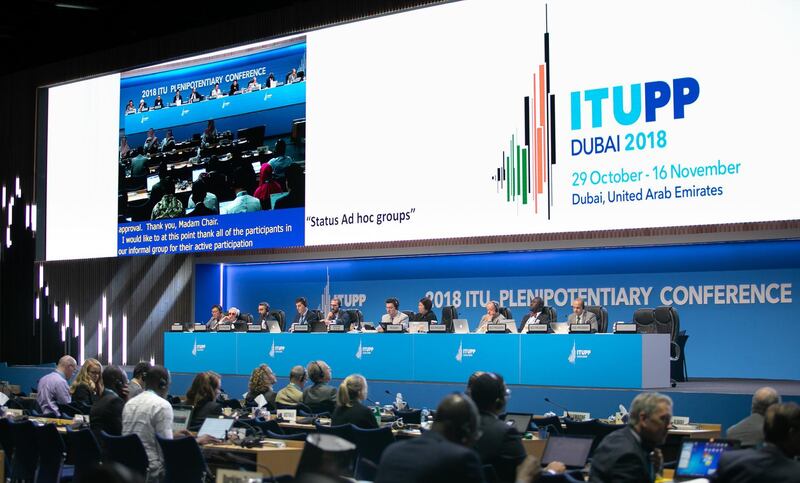Digital inclusion is key when it comes to the successful roll out of 5G and other new technologies that aim to enhance network capabilities to meet the future demands, global delegates at a telecom conference in Dubai said.
“We all speak about 5G and various latest technologies but first we have to work for the digital inclusion of society at a global level. ITU [International Telecommunication Union] is working to remove the barriers but we need a more forceful push,” said Khaled Ahmed, adviser to the Ministry of ICT in Djibouiti, on the Horn of Africa.
Digital inclusion is the ability of all individuals and groups to access and use Information and Communication Technologies (ICTs).
Mr Ahmed, who was taking part in the ITU’s 20th Plenipotentiary conference in Dubai, also called for the standardisation of rules and regulations to ensure a fair ground for all countries.
“At Djibouiti, we are working to fill the digital divide and enhance internet connectivity … prerequisites before the 5G roll out. It obviously requires more partnerships between various countries at different levels.”
ITU’s Connect 2020 Agenda calls for up to 50 per cent of households in developing nations to have an internet access by 2020 and also reduce prices.
However, ITU estimates that almost 3 billion people will still remain offline in 2020 in the absence of coordinated approach towards connectivity. Most of these will be in developing nations.
5G is the name used to describe the fifth generation of cellular mobile communications, which is poised to include rapid data transfer rate, energy saving, cost reduction, and widespread device connectivity through Internet of Things (IoT).
“It could be 3G, 4G or 5G ... but we look at any generation technology in the same way - it should be inclusive,” said V Raghunandan, deputy director general, international relations at Indian Ministry of Communications.
“Moreover, 5G is not only a spectrum but it is a whole ecosystem that has the potential to play a massive role in our lives. It includes various aspects of technology such as IoT, smart cities and big data,” said Mr Raghunandan.
The issue before policymakers is to ensure 5G will serve the whole community, covering all segments, said Mr Raghunandan, who said 5G had an equally important role to play in rural as well as urban areas.
_______________
Read more:
[ Exclusive: Kenya to focus on mobile money, single digital economy ]
Digital solutions and 5G to boost Etisalat and du's profitability
[ Regional telcos will have to innovate for wider internet penetration ]
_______________
Houlin Zhao, ITU’s secretary-general, said the challenge today was to ensure that technologies and ICTs in general continue to be a source for good for everyone across the world.
“New technologies like 5G, artificial intelligence, big data and the internet of things will change how we live, work and learn in ways that have yet to be imagined. And ITU is in the front seat,” said Mr Zhao.
While great progress has been made, there still remain 3.9 billion people around the world who are not connected to the internet yet, according to a survey from the ITU.
“5G is coming but currently it is at an early stage of development and we look forward to global collaborations to get best out of it,” said Charles Semapondo, who is heading Rwanda’s delegation at ITU’s Dubai meeting.
“ICT is a central point of the fourth industrial revolution and it is also helping developing nations. But it brings its own challenges such as cyber security and data breach.”







